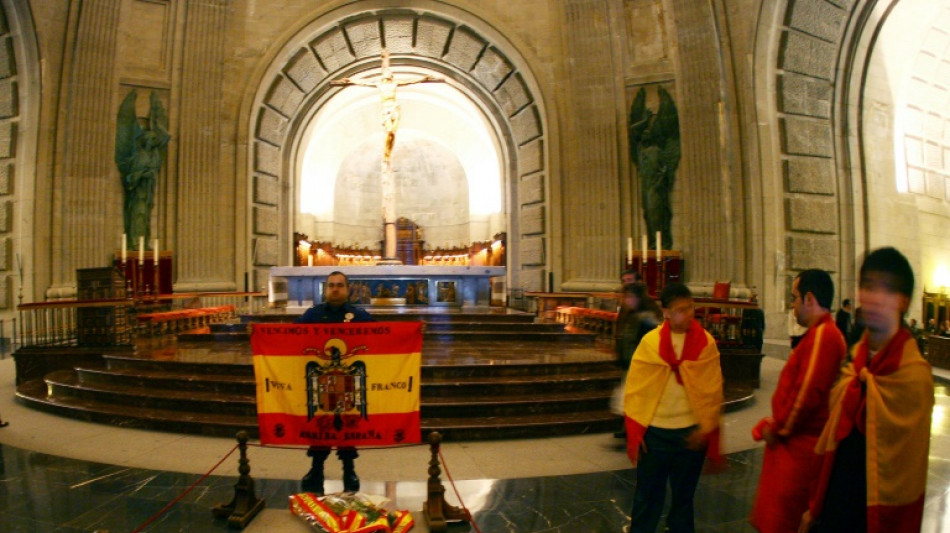
-
 France set to face New Zealand with second-string squad
France set to face New Zealand with second-string squad
-
Eyeing China, EU moves to ban 'high-risk' foreign suppliers from telecoms networks

-
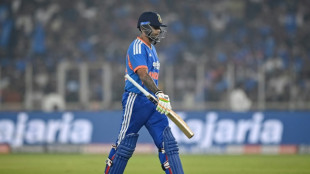 Struggling Suryakumar will not adapt style to find form before T20 World Cup
Struggling Suryakumar will not adapt style to find form before T20 World Cup
-
World stocks sink, gold hits high on escalating trade war fears
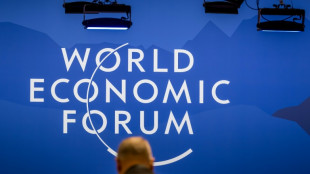
-
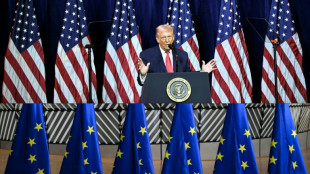 Easier said than done for US to apply tariffs on single EU states
Easier said than done for US to apply tariffs on single EU states
-
Canada military models response to US invasion: report
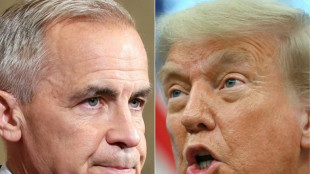
-
 Salah returns to Liverpool training after AFCON
Salah returns to Liverpool training after AFCON
-
Milan menswear shows add bling with brooches

-
 Scotland recall Gray, Cherry for Six Nations
Scotland recall Gray, Cherry for Six Nations
-
Scheib storms to Kronplatz giant slalom victory as Brignone impresses in World Cup return

-
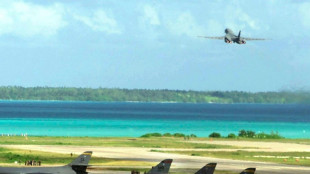 Chagos Islands: international dispute and human drama
Chagos Islands: international dispute and human drama
-
Thousands of farmers protest EU, Mercosur trade deal ahead of vote
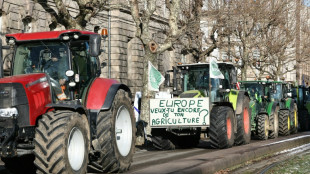
-
 Men's Fashion Week kicks off in Paris with tributes for Valentino
Men's Fashion Week kicks off in Paris with tributes for Valentino
-
Lake named as captain as Wales unveil Six Nations squad

-
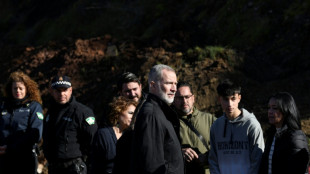 Royals visit deadly train crash site as Spain mourns
Royals visit deadly train crash site as Spain mourns
-
Police, pro-Kurd protesters clash at Turkey border with Syria
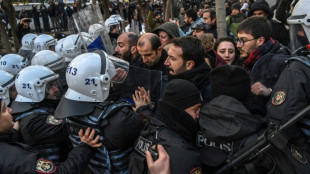
-
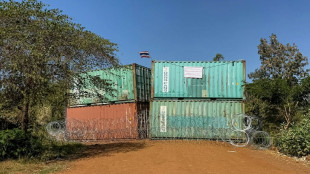 Thai forces razed Cambodian homes on border: rights group
Thai forces razed Cambodian homes on border: rights group
-
Jellyfish-inspired Osaka battles into Australian Open round two
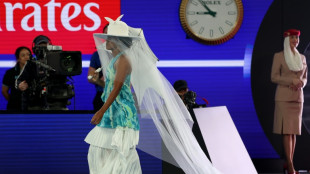
-
 Valentino taught us to respect women, says partner
Valentino taught us to respect women, says partner
-
Australia stiffens hate crime, gun laws after Bondi attack
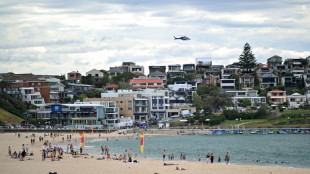
-
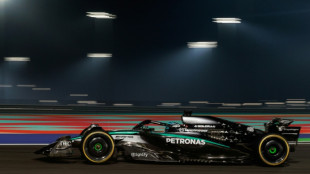 Mercedes chief designer Owen to leave F1 team
Mercedes chief designer Owen to leave F1 team
-
Trump unloads on allies as Davos showdown looms
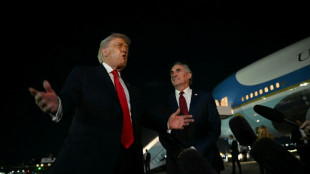
-
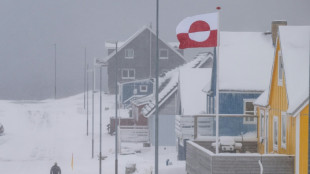 Moscow revels in Trump's Greenland plans but keeps concerns quiet
Moscow revels in Trump's Greenland plans but keeps concerns quiet
-
Global tourism hit new record level in 2025: UN
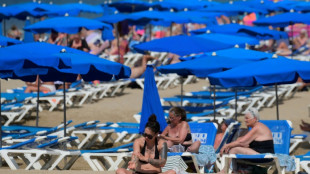
-
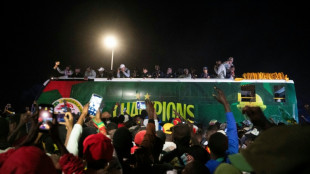 Senegal poised to party with parade honouring AFCON champs
Senegal poised to party with parade honouring AFCON champs
-
Osaka emerges for Melbourne opener under hat, veil and parasol
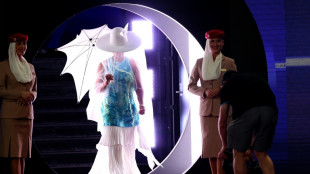
-
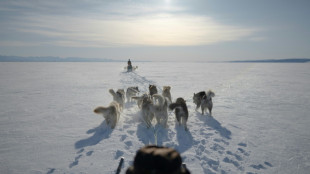 Dogsled diplomacy in Greenland proves elusive for US
Dogsled diplomacy in Greenland proves elusive for US
-
Almost half of Kyiv without heat, power, after Russian attack
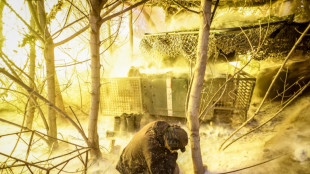
-
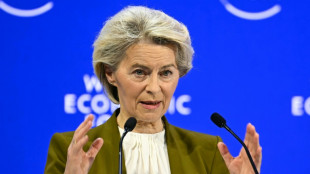 EU vows 'unflinching' response to Trump's Greenland gambit
EU vows 'unflinching' response to Trump's Greenland gambit
-
Osaka steals show at Australian Open as Sinner strolls through
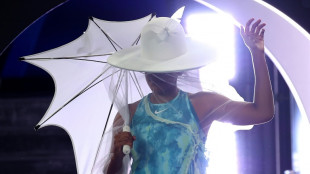
-
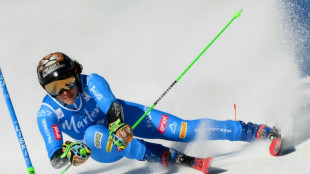 Brignone impresses in first run of Kronplatz giant slalom in World Cup comeback
Brignone impresses in first run of Kronplatz giant slalom in World Cup comeback
-
Osaka emerges for Melbourne opener under white hat and umbrella
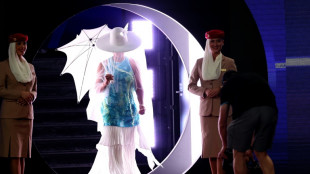
-
 Malawi suffers as US aid cuts cripple healthcare
Malawi suffers as US aid cuts cripple healthcare
-
Bessent says Europe dumping US debt over Greenland would 'defy logic'

-
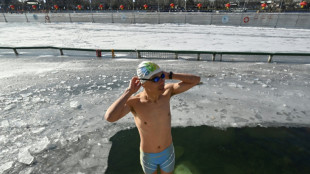 Freeze, please! China's winter swimmers take the plunge
Freeze, please! China's winter swimmers take the plunge
-
Talks between Damascus, Kurdish-led forces 'collapse': Kurdish official to AFP
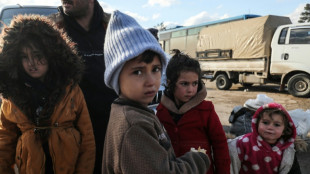
-
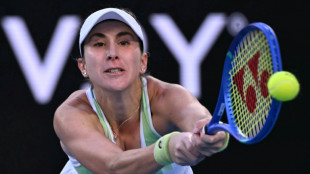 In-form Bencic makes light work of Boulter at Australian Open
In-form Bencic makes light work of Boulter at Australian Open
-
Spain mourns as train disaster toll rises to 41
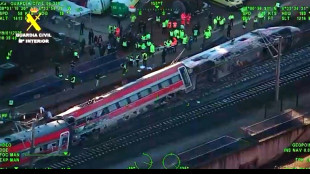
-
 Sinner into Melbourne round two as opponent retires hurt
Sinner into Melbourne round two as opponent retires hurt
-
Israel begins demolitions at UNRWA headquarters in east Jerusalem
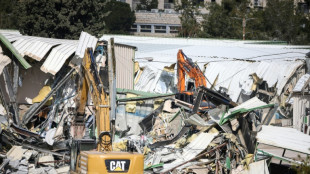
-
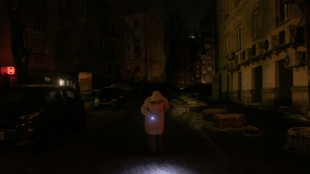 Almost half of Kyiv without heat, power, after Russian attack: govt
Almost half of Kyiv without heat, power, after Russian attack: govt
-
Veteran Monfils exits to standing ovation on Australian Open farewell

-
 Precision-serving former finalist Rybakina powers on in Melbourne
Precision-serving former finalist Rybakina powers on in Melbourne
-
South Korea's women footballers threaten boycott over conditions

-
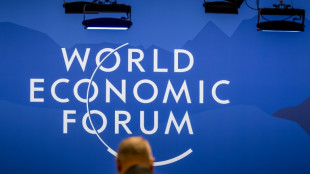 Equities sink, gold and silver hit records as Greenland fears mount
Equities sink, gold and silver hit records as Greenland fears mount
-
Australian lawmakers back stricter gun, hate crime laws
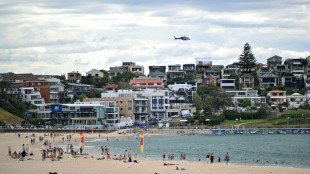
-
 EU wants to keep Chinese suppliers out of critical infrastructure
EU wants to keep Chinese suppliers out of critical infrastructure
-
AI reshaping the battle over the narrative of Maduro's US capture
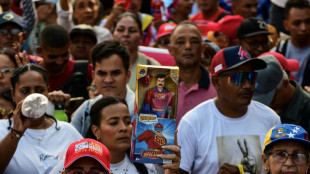
-
 Penguins bring forward breeding season as Antarctica warms: study
Penguins bring forward breeding season as Antarctica warms: study
-
Vietnam leader pledges graft fight as he eyes China-style powers
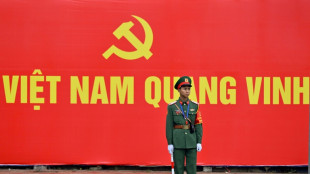
| RIO | -0.14% | 85.01 | $ | |
| CMSC | -0.17% | 23.44 | $ | |
| SCS | 0.12% | 16.14 | $ | |
| BTI | -2.5% | 56.8 | $ | |
| NGG | -0.63% | 80.38 | $ | |
| GSK | -0.34% | 48.055 | $ | |
| RBGPF | -1.87% | 82.5 | $ | |
| BCC | -2.13% | 83.724 | $ | |
| BCE | -0.19% | 24.095 | $ | |
| RYCEF | 0.06% | 17.06 | $ | |
| RELX | -2.51% | 40.61 | $ | |
| CMSD | -0.78% | 23.736 | $ | |
| BP | 0.18% | 35.445 | $ | |
| JRI | -0.22% | 13.67 | $ | |
| AZN | -4.41% | 90.439 | $ | |
| VOD | 0.26% | 13.505 | $ |

Spain exhumes remains of fascist party founder
Experts were on Monday exhuming the remains of the founder of Spain's fascist Falange party from a grandiose basilica, where the body of former dictator Francisco Franco once lay, ahead of their removal to a low-key family grave.
The operation comes six months after Spain passed the so-called democratic memory law which is designed to tackle the legacy of the 1936-39 civil war and the decades of dictatorship that followed.
Jose Antonio Primo de Rivera founded the Falange party in 1933, which became one of the pillars of Francisco Franco's brutal regime, along with the military and Spain's Roman Catholic Church.
Executed in November 1936 at the start of the war for conspiring against the elected Republican government, Primo de Rivera was in 1959 buried inside the basilica in the Valley of the Fallen, 50 kilometres (30 miles) northwest of Madrid.
By 0630 GMT, two black funeral cars could be seen outside the complex, with Spanish public television saying the operation had begun to exhume and transfer his remains to San Isidro cemetery in Madrid where he will be laid alongside other family members.
Under the new law, no figure linked to the 1936 military coup that triggered the civil war should be buried in "a prominent public place" that could encourage acts of homage or exultation.
Accordingly, the family agreed to have his remains be transferred to San Isidro, selecting April 24 as the date because it marks exactly 120 years since his birth.
The basilica where Primo de Rivera's remains lay for over six decades, is part of a vast hillside mausoleum built after the civil war by Franco's regime -- in part by the forced labour of 20,000 political prisoners.
When the dictator died in 1975, he was also buried there, in a tomb by the altar, close to Primo de Rivera's grave, with the site long being a draw for those nostalgic for the Franco era.
Cabinet minister Felix Bolanos said the operation "was another step" in the government's efforts to strip the mausoleum of its status as a symbol of Francoism and far-right ideology.
"It should not be possible to pay tribute to any person evoking the dictatorship," he said after the government announced the exhumation on Thursday.
Honouring those who died or suffered violence or repression during the civil war and dictatorship has been a top priority for the left-wing government of Prime Minister Pedro Sanchez, who came to power in 2018.
In 2019, his government relocated Franco's remains from the basilica following a lengthy legal battle with the dictator's family.
- A place of memory -
The basilica -- topped by a 150-metre (500-foot) stone cross -- and mausoleum also house the remains of more than 30,000 victims from both sides of the civil war.
It is a deeply divisive symbol of a past that Spain still finds difficult to digest.
The democratic memory law, which came into effect in October 2022, aims to turn the Valley of the Fallen into a place of memory for the dark years of the dictatorship.
It also promotes the search for the regime's victims who are buried in mass graves across Spain and annuls the criminal convictions of opponents of the Franco regime.
But the law has been politically divisive with right-wing parties saying it needlessly dredges up the past.
Santiago Abascal, leader of far-right Vox, accused the government of seeking to "once again desecrate tombs and dig up hatred" with Primo de Rivera's exhumation.
The move comes as Spain gears up for regional and local elections on May 28 and a year-end general election which polls suggest will be tight.
A.Gasser--BTB



